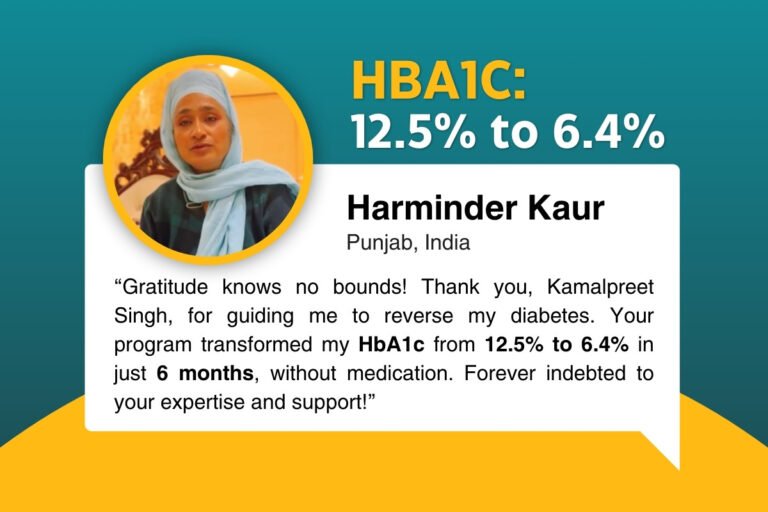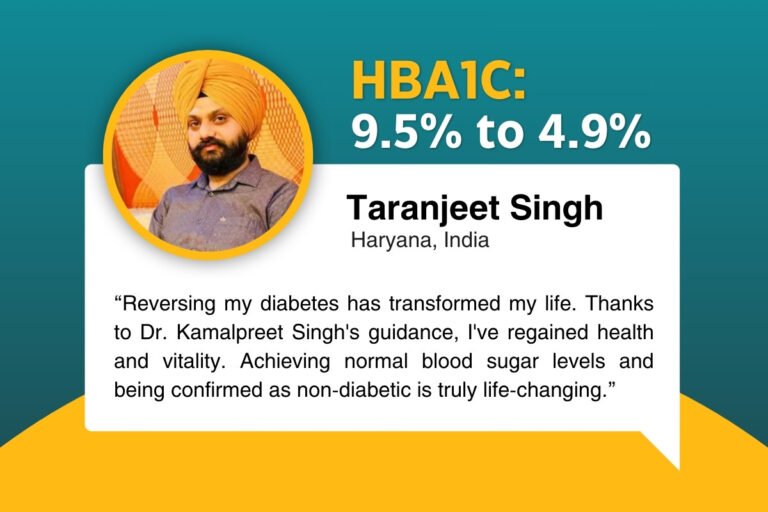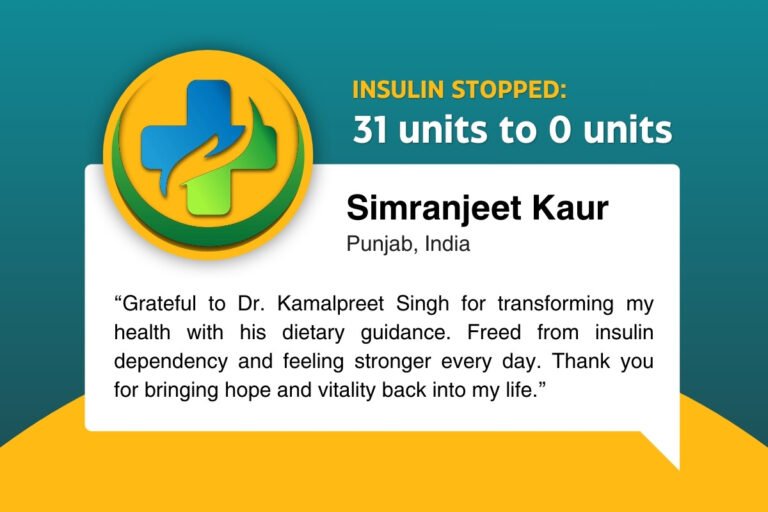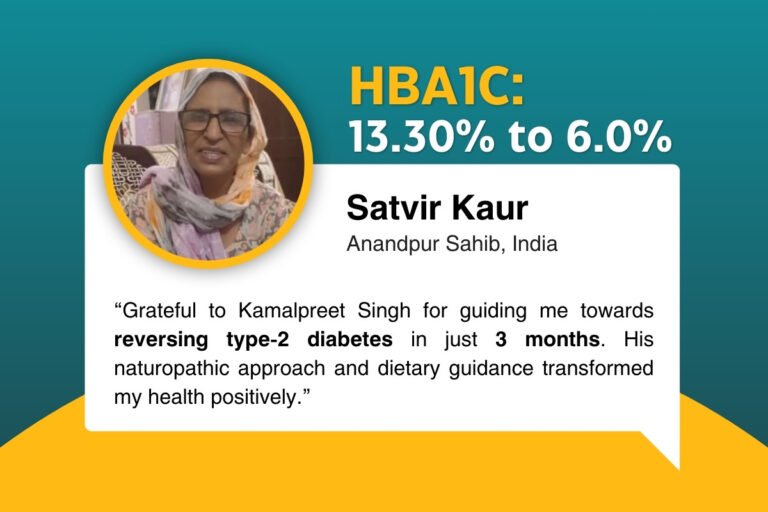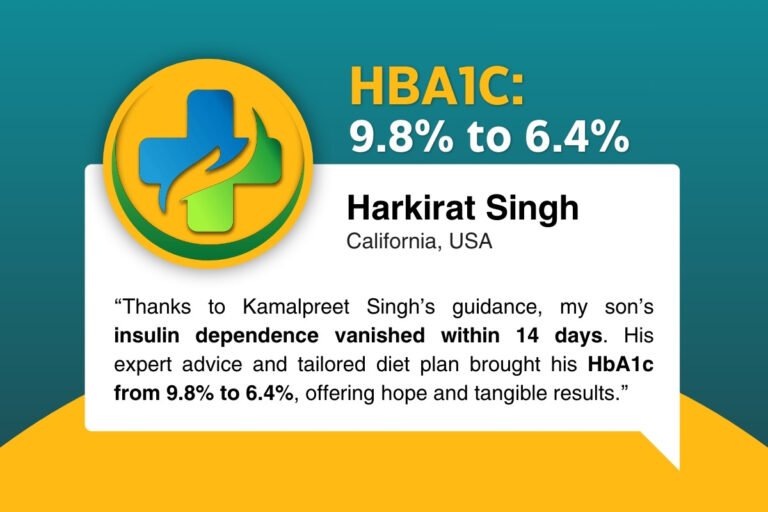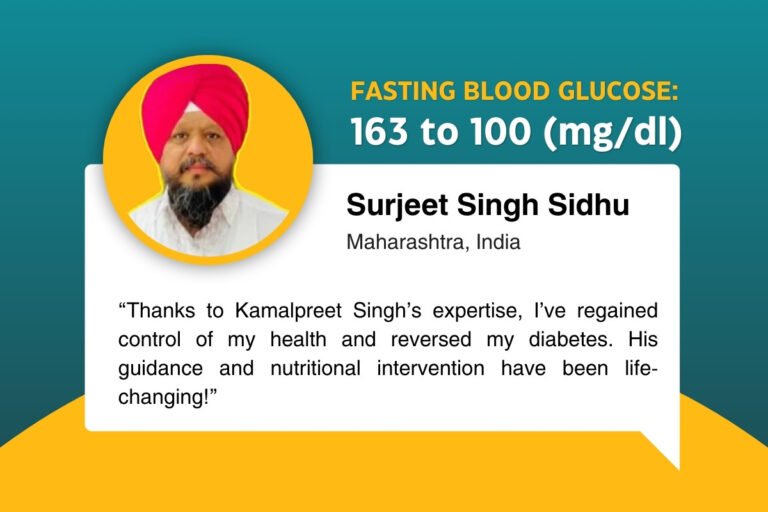Explore Our Published Research Findings
Read More

We present a case of a thirteen-year-old girl, weighing 28.5 kgs, who was diagnosed with T1D in Punjab, India in 2019. Before diagnosis, she complained of frequent urination, increased thirst, excessive fatigue, and weight loss. There were extreme fluctuations in blood glucose levels. She was injecting a total of about 25 units of insulin daily to maintain her blood glucose readings. The patient approached the author to assist her in dietary modification.

Here, we present a case of a five-year-old boy, weighing 18 kgs, who was diagnosed with T1D in California, USA on 28.11.2022. Before diagnosis, he complained of frequent urination, increased thirst, excessive weakness and some weight loss. On the day of diagnosis, his Hb1Ac was 9.8% and blood glucose showed extreme fluctuations, with average postprandial glucose (PPG) above 300 mg/dl, the highest recorded was 490 mg/dl on 30.11.2022. It was an indication of T1D. The doctor concerned prescribed insulin injections to control blood glucose. He was advised to inject a total of 12 units of insulin daily. In the absence of initial C-peptide and Glutamic Acid Decarboxylase (GAD) reports, it was difficult to ascertain the diagnosis to be T1D. However, such negligence in maintaining records by the clinical practitioners should be avoided which may lead to discrepancies in diagnosis.
This case report depicts the effectiveness of a personalized nutritional intervention program focused on Whole Food Plant Based Diet (WFPBD) and Intermittent Fasting (IF) in reducing blood glucose, body weight, waist circumference, without any pharmacological treatment.
Type 2 diabetes (T2D) is a metabolic disorder characterized by hyperglycemia. T2D may lead to health complications such as retinal damage, chronic kidney disease, peripheral neuropathy, systemic hypertension, and coronary heart disease. This case report presents the complete reversal of T2D in a newly diagnosed patient after initiation of a whole food plant-based diet. He was able to reverse diabetes and maintain normal blood glucose readings without any pharmacological treatment.
To verify the hypothesis that eating whole fruit is better than drinking 100% FJ for glycemic control. In this study we evaluate and compare the effect of consumption of 300-ml orange FJ and 300-gram of orange fruit on post-prandial glucose (PPG) levels measured after 1 hour and 2 hours.

Type-2 diabetes (T2D) is a metabolic disorder characterized by hyperglycemia. T2D may lead to health complications such as retinal damage, chronic kidney disease, peripheral neuropathy, systemic hypertension, and coronary heart disease. In the present case report, we observed remission of T2D in a newly diagnosed aged patient after initiation of a whole food plant-based diet. The patient was able to achieve normal blood glucose readings without any pharmacological treatment. HbA1c lowered from 13.30% to 6.20% after 12 weeks of nutritional intervention.


